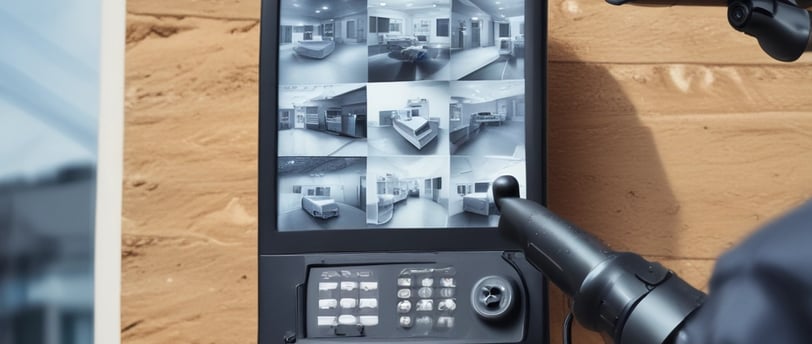Wired vs. Wireless CCTV Systems: A Comprehensive Guide to Making the Right Choice
12/22/20242 min read


Introduction
Choosing the right CCTV system is crucial for your security needs. With advancements in technology, there are now two primary types of CCTV systems available: wired and wireless. Understanding the differences between these systems is essential in making an informed decision that meets your requirements. This guide explores the factors to consider when choosing between wired and wireless CCTV systems.
Advantages of Wired CCTV Systems
Wired CCTV systems have been the traditional choice for many homeowners and businesses. Their reliability is one of the key advantages. Wired systems offer a stable connection as they transmit video data through cables directly to a storage device. This stability minimizes the risk of signal loss and interference, ensuring better video quality.
Additionally, wired systems are less vulnerable to hacking compared to their wireless counterparts. The physical connection means that unauthorized access from external sources is less likely. Furthermore, wired systems typically provide uninterrupted power; they are powered through an electrical connection, which means you won't have to worry about battery replacements or recharge cycles.
Benefits of Wireless CCTV Systems
On the other hand, wireless CCTV systems provide significant flexibility both in installation and usage. With no cables to manage, installation can be straightforward and less invasive. This makes wireless systems an appealing choice for those looking to install cameras in hard-to-reach areas or for those who want a quicker setup without extensive cabling.
Moreover, wireless systems allow for remote viewing through internet connectivity. Users can access their CCTV footage from almost anywhere, using smartphones, tablets, or computers, providing enhanced convenience. Some wireless CCTV systems have advanced features such as cloud storage options, which can be particularly beneficial for users who prefer a hassle-free way of storing their data securely.
Key Considerations When Choosing
When deciding between wired and wireless CCTV systems, there are several factors to weigh. First, consider your specific security requirements. If you need a high level of security with reliable footage and are less concerned about installation complexity, a wired system may be the better choice. However, if flexibility and ease of installation are your primary goals, then a wireless system might suit your needs more effectively.
Additionally, take into account the physical environment where the system will be installed. If the area is prone to interference, a wired system may provide more stable performance. Also, consider the long-term costs associated with both systems, including maintenance and potential upgrades.
In conclusion, both wired and wireless CCTV systems have their unique advantages and disadvantages. The decision ultimately rests on your specific needs and preferences. By assessing your security requirements, environment, and budget, you can choose the CCTV system that best protects your property.
